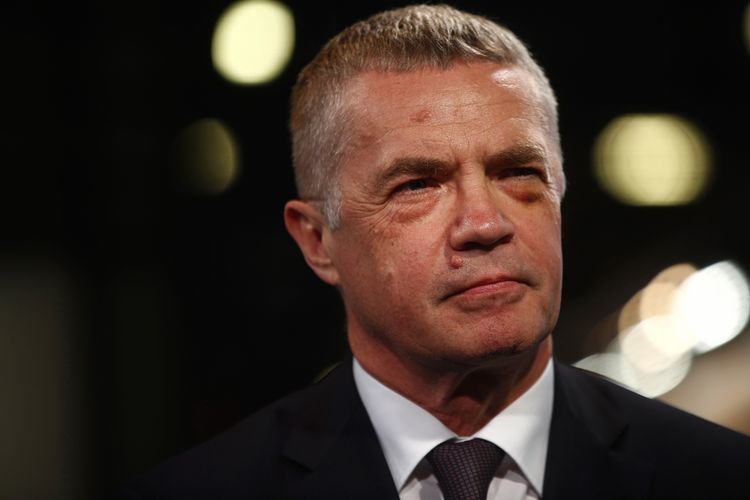
Gazprom PJSC is in talks to ramp up natural gas sales in the UK as coal plants are shuttered and the nation’s biggest storage site is closed for good.
“We see an appetite from major players in the UK for additional volume of contracted gas,” Deputy Chief Executive Officer Alexander Medvedev said in an interview in Prague on Thursday, declining to provide further details on negotiations. “Our supplies to the UK increased substantially in the course of the last two years.”
The world’s biggest gas producer sees an opportunity to sell more of the fuel after Centrica Plc announced it would close its Rough storage facility in the North Sea and the nation plans to stop using coal-fired plants by the middle of next decade. Medvedev expects Britain to increase imported volumes by 8 billion to 12 billion cubic meters a year by 2025.
After opening an office in 1999 outside London, Gazprom has gradually expanded in the UK market through acquisitions. Earlier this year it became one of the largest retail gas suppliers to British industrial and commercial buyers after one of its units completed an acquisition of Wingas UK The additional supply deals with UK buyers will be brokered through the British trading unit, according to Medvedev.
Gazprom Energy, the industrial supply arm, is headquartered in Manchester and has about 300 employees. It complements the London-based trading unit active in markets from oil to gas, power and carbon.
While Britain’s import needs are mostly met by Norway, it also receives Russian fuel indirectly through pipelines on the European continent, which is typically cheaper than liquefied natural gas cargoes.
Britain also faces falling domestic gas output from the North Sea that will increase reliance on foreign supplies. The UK Oil and Gas Authority estimates 78 percent of Britain’s gas will be imported by 2035, up from about 50 percent this year. Gazprom, Russia’s state-run export monopoly, boosted supplies to the UK by 61 percent last year.
Read about UK’s global gas fight as Centrica shuts Rough facility
“I am not surprised about that,” said Guillermo Baena Gomez, a senior energy trader at Advantage Utilities Ltd. in London, referring to increased Russian gas sales in Britain. “They are going to be more than happy to fill the energy gap after Rough and make millions from the situation.”
German Link
Gazprom already plans to channel more gas into Germany through its proposed Nord Stream 2 pipeline, which could replace fuel that currently flows into Europe via Ukraine. From Germany, the gas could be transferred to the UK via the Netherlands and then to England using the Balgzand Bacton pipeline.
The extra supply would be helpful to companies like Centrica, Gomez said. The UK’s biggest supplier of energy to homes also provides gas to other utilities and industrial buyers. To compensate for the reduced flows from Rough, it may turn to buying more Russian gas, according to Gomez.
Ross Davidson, a spokesman for Centrica, declined to comment.
The Windsor, England-based utility already has a supply contract with Gazprom’s British trading arm. An original deal from 2012 was extended in 2015 with annual volumes amounting to 4.16 billion cubic meters on average, or about 6 percent of the nation’s annual demand.
Extra Russian gas in the UK could drive down prices by boosting competition and may help ease the sting of losing Rough, according to Nick Campbell, an energy risk manager at Inspired Energy Plc in Preston, England.
“Technically it is encouraging,” he said. “Russian pipeline gas would offer greater flexibility than LNG delivery with gas field production being able to flex to meet demand quicker than sending a tanker from the US East Coast and/or Qatar.”
Recommended for you
